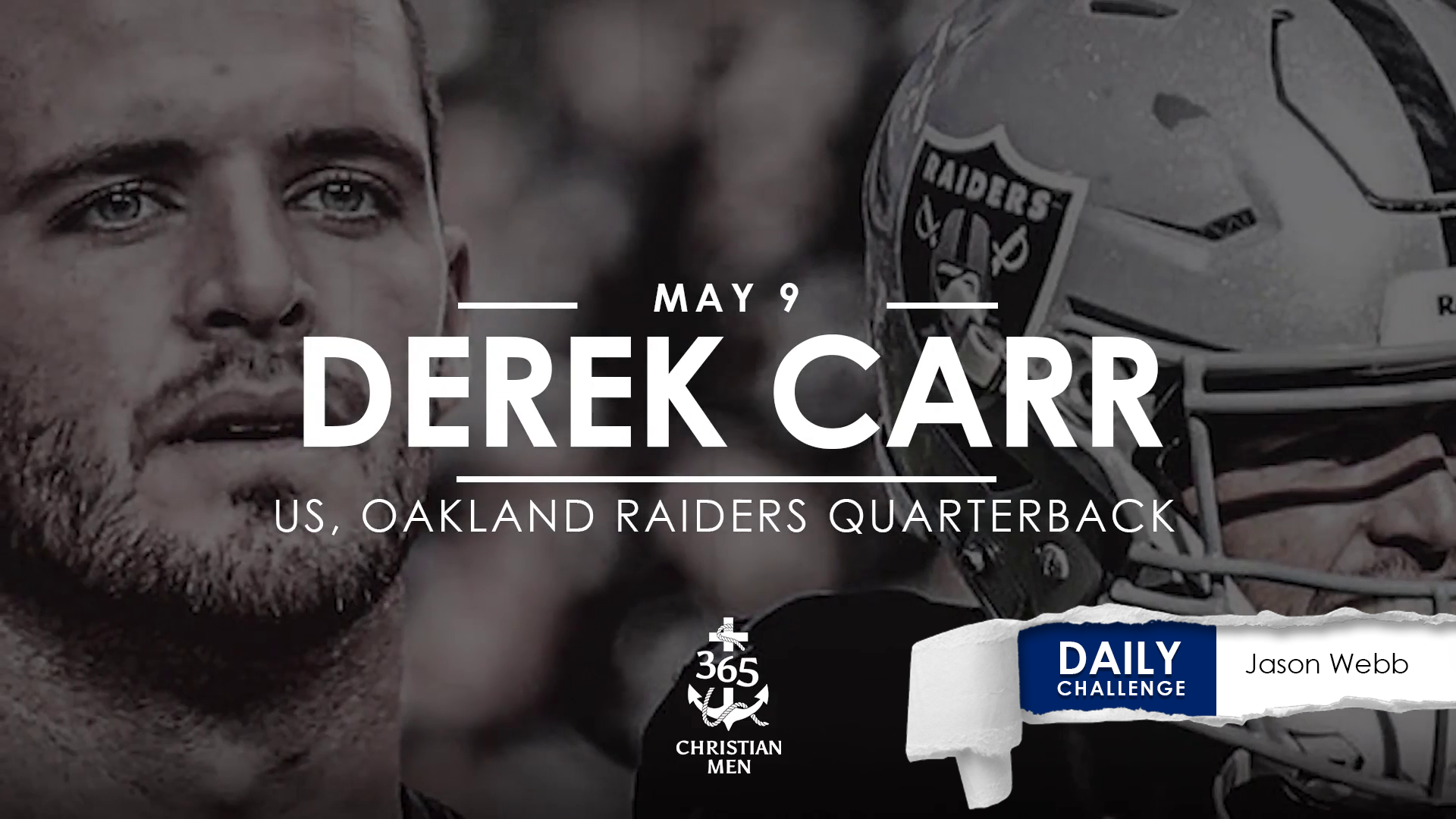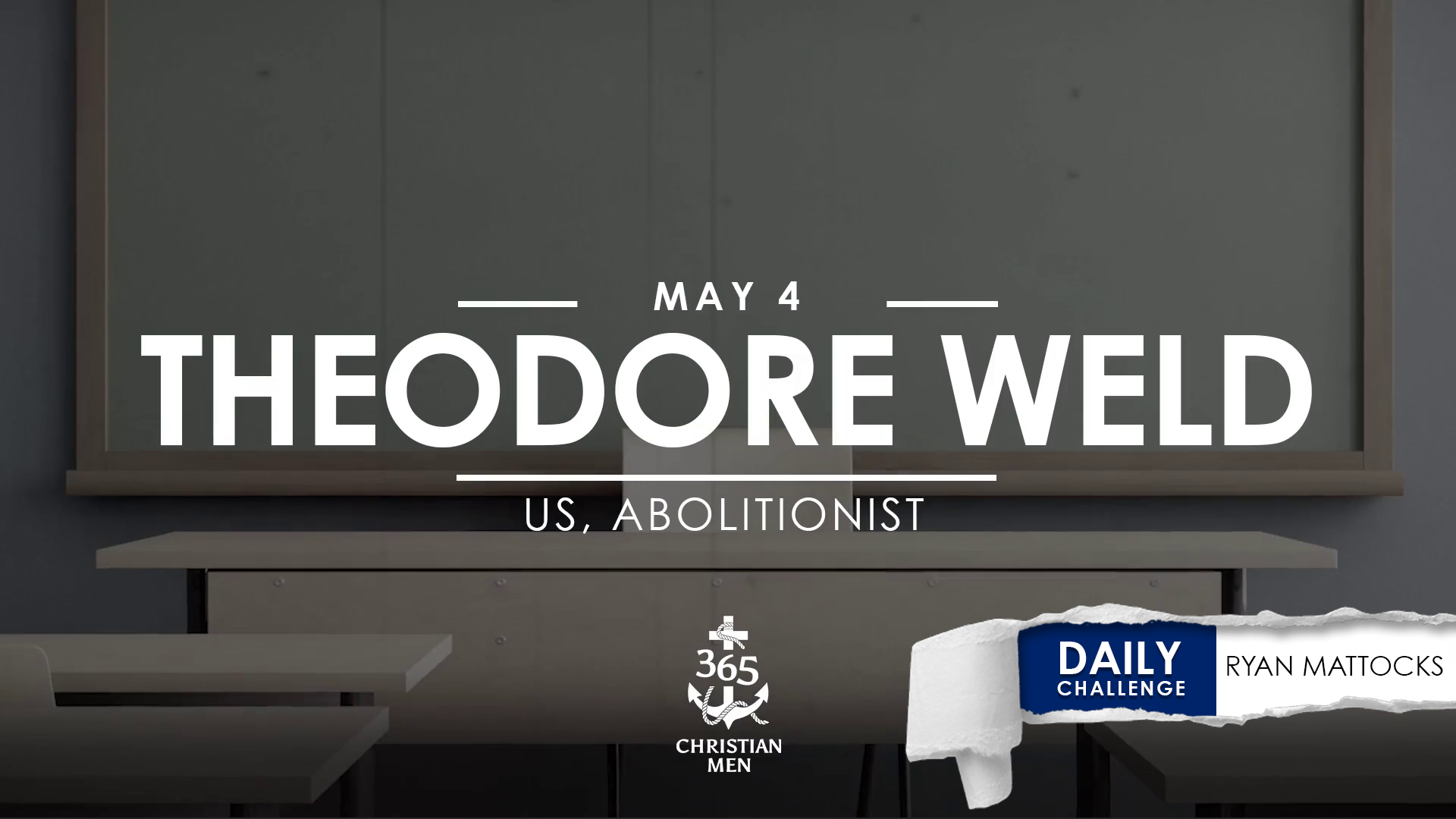May 9. Derek Carr. Derek played high-school football in Texas and California, and he received a scholarship to play college football at California State University at Fresno, where he won numerous awards.
On this date in 2014, Derek was drafted into the NFL by the Oakland Raiders. He was the first rookie quarterback to start a season opener for the Raiders. Here’s his story.
Saying you’re sorry can heal the wounded; showing you’re sorry can change a life.
“You’re not the man I thought you were.” Those words—more than any others—changed Derek’s life. Keep in mind, this is a man who has heard his name after the phrase: “With the 36th overall pick in the NFL draft, the Oakland Raiders have selected….”
While at Fresno State, Derek had lived the proverbial Big Man on Campus life. As his talents rose on the field, the demand for his attention rose off the field. Parties. Clubs. Girls. Everyone wanted some of Derek’s time. And he was more than happy to give it.
He spent his days talking about how important his faith in God was and how Jesus had changed his life. But his nights were filled living in the opposite direction.
Heather, a friend who had just recently become more than a friend and would one day become his wife, remembers that time. “He would say one thing but act the opposite way,” she said. “He was talking about God and how much he loved God, and then I would see him going to the parties, hanging out with girls.”
After she’d seen enough of Derek’s double life, she wrote him a letter—a page and a half of describing the behavior she saw and begging for a change. In it, she told him, “You’re not the man I thought you were.”
“That’s what God used to grab my attention to live for him,” Derek said. “After living both ways…I’ll never go back.” From that moment on, fueled with the kind of determination he once reserved for football, Derek hurled himself down a path to make things right.
He found Heather and begged for her forgiveness. With tear-stained cheeks, he thanked her for caring enough to be honest with him and wanting the best for him.
Once that relationship was healed, he turned his attention to the group of men who’d been put under his leadership, his teammates. Sitting in the locker room in Oxford, Mississippi, minutes before a big game against the Ole Miss Rebels, the entire Fresno State Bulldogs were focusing in on the game that lay ahead. That is, everyone but Derek. He only had one thing on his mind. Confession.
He stood and gathered the attention of his teammates. He spoke about foolish choices. Being a Christian who wasn’t living like one. Failures he wished he could take back. He admitted all his mistakes and humbled himself before the team and asked for their forgiveness. He finished his speech by echoing Paul’s words from 1 Corinthians, “I am a Christian. Watch how I live my life now.”
“Therefore, confess your sins to each other and pray for each other so that you may be healed” (James 5:16 NIV).
Who do you need to ask for forgiveness today? Don’t waste any more time. Do it now. Saying you’re sorry can heal the wounded; showing you’re sorry can change a life.
“Derek Carr.” The Famous People. Accessed August 6, 2020.
https://www.thefamouspeople.com/profiles/derek-Derek-15575.php
Derek Carr. Faith. Family. Football. Accessed August 6, 2020. http://derekDerekqb.com/story.php
Ellsworth, Tim. The Baptist Press. Southern Baptist Convention. June 27, 2017.
Galvaiz, Anthony. The Fresno Bee. Fresno, CA. August 27, 2017.
Story read by Nathan Walker















